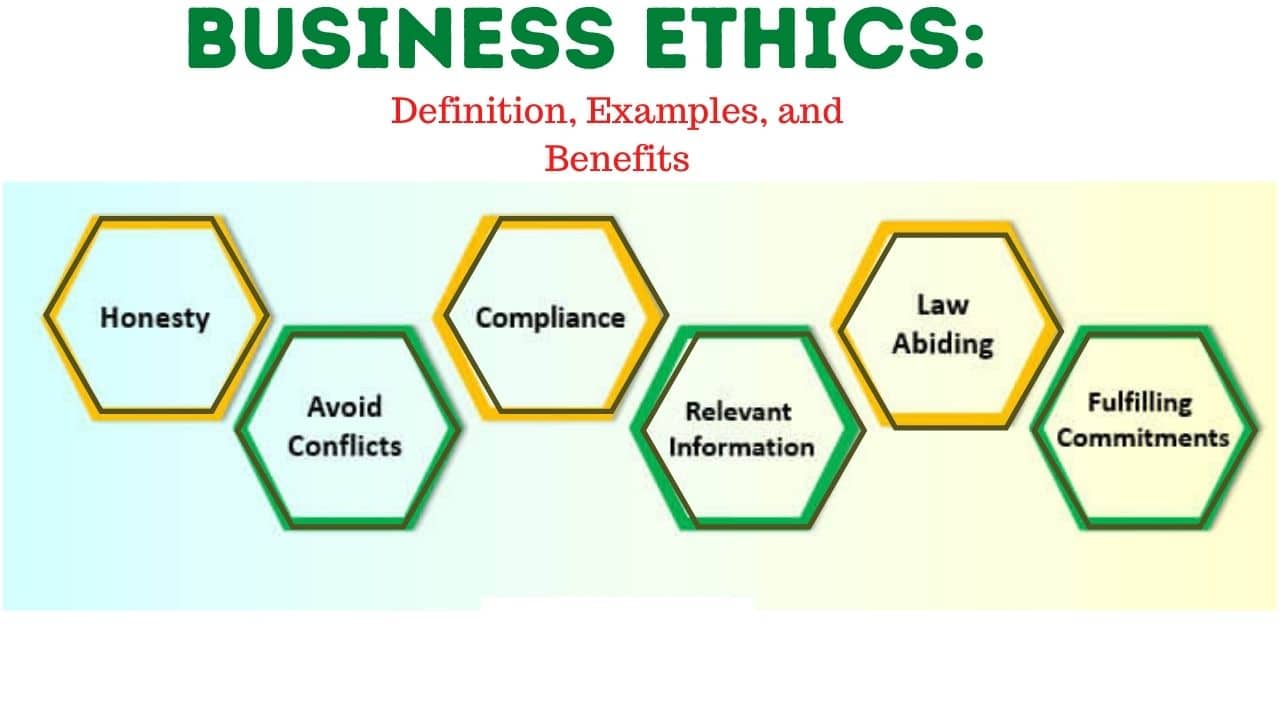Businesses are frequently confronted with legal difficulties regarding corporate compliance, real estate, and employment law. Buying, selling, or managing a business, purchasing or leasing real estate, and employing or terminating personnel are all common reasons to consult with a business lawyer.
Who is a Lawyer?
Before we delve into business law, let’s clarify what may appear to be an easy question: what exactly is a professional? The truth is that there are many distinct types of lawyers, each with its own set of expertise and skills. Some lawyers defend or prosecute criminals, while others campaign for civil rights, and still others can go their entire career without ever setting foot in a courtroom!
Great business lawyers are problem solvers who are adaptable and competent, always seeking the best approach to assist their clients.
What Is the Role of a Business Lawyer?
Business law is divided into two categories: transactional and litigation.
A transactional business lawyer advises you on how to start and maintain your business. Acquiring another firm and ensuring that your current business conforms with current standards might be difficult.
If you are being sued or need to sue someone else, you should hire a business lawyer who specializes in litigation. In general, they continue where transactional lawyers left off, such as when a contract or other legal document is broken or disputed.
Business lawyers can assist you to navigate complex regulations and developing and review business agreements to keep your company running successfully. Furthermore, if things aren’t going well, they can take you to court.
What Kinds of Cases Does a Business Attorney Handle?
In general, business attorneys have a diverse set of talents and are thus well-equipped to manage a wide range of business-related issues. The following are some instances of common legal challenges that company attorneys may face on a daily basis:
- Disputes over business and/or contracts;
- Real estate or commercial property concerns;
- Intellectual property registration (e.g., copyrights, trademarks, patents, and so on);
- Improper use of protected data (for example, privacy concerns, security breaches, information governance, and so on);
- Conflicts arising from the selling and purchase of businesses, stocks, securities, and so on;
- Observance of business regulations and other applicable legislation;
- Registration of a business structure, federal and state tax identification numbers, and licenses required; and/or
- Issues of interstate and international commerce (e.g., transportation of goods, etc.).
As the preceding list shows, business attorneys can provide a wide range of legal services. Depending on the issue, this may require doing transactional chores like contract drafting and corporate tax filings, or case-based work such as representing a client in court or negotiating terms to reach a settlement agreement.
What Other Problems Do Business Lawyers Solve?
A corporate attorney may also handle the following less typical issues:
- Transferring a company’s ownership of shares;
- Supervising the “wind-up” process (the steps necessary to dissolve a corporation);
- Assisting a corporation in adapting to changes in the legislation or new ownership;
- Assisting with a company’s structure change (for example, transitioning from an LLC to filing as a C corporation); and/or
- Various business contracts that must be reviewed, drafted, and negotiated.
Many of the challenges and tasks stated above that business attorneys deal with on a daily basis may also be affected by the size of the business and its industry. A small business attorney, for example, maybe hired to manage all aspects of a small business or starting company. This can range from reorganizing the organization to assessing compliance issues on a regular basis.
Business attorneys that work for huge corporations, on the other hand, may specialize in specific sectors of the business. For example, a business may have a complete in-house staff of legal professionals who solely handle compliance concerns, or the corporation may choose to hire outside counsel only for litigation purposes.
Importance of a Business Lawyer for Small Business Owners
Hiring a lawyer is well known to be costly, making it difficult for some small business owners to retain their services. However, if your company gets sued, you’ll be relieved that you engaged a lawyer.
When considering lawyers, ask a lot of questions and find out how they’ve assisted other businesses like yours.
Hiring an attorney can also assist you in ensuring that your company is running legally. They can scrutinize contracts and documentation that you might otherwise take for granted.
Furthermore, even if they are not accountants, some lawyers are aware of tax concerns. They may have addressed legal tax concerns for other business owners and can help you avoid the same problems. Of course, you should confer with both your lawyer and your accountant.
Types of Business Lawyer
People frequently wonder what kinds of lawyers are available to them. Lawyers frequently specialize in one of two areas: commercial law or personal law. As a result, you should look for lawyers with experience in company law.
The sections that follow explain six different categories of small company lawyers. After reading the parts, you’ll have a better idea of which is best for your company.
#1. General Business Lawyer
A general business lawyer, as the name implies, can provide legal assistance on a wide range of issues. This type of lawyer is involved in all aspects of the law. If your company does not deal with unusual conditions, a typical business lawyer may be more appropriate for your needs.
Inquire about numerous eventualities that could affect your organization when considering this form of a business lawyer. If you aren’t convinced that your company would be protected in those instances, you should hire more specialized counsel.
#2. Employment and Labor Attorney
Using an employment and labor lawyer makes sense only if your company employs employees. If it does, your company must follow both state and federal laws. An attorney who specializes in this area of the law can assist you in creating employee manuals and ensuring that safety regulations are met.
Wrongful terminations, workplace discrimination, and sexual harassment are just a few of the employment issues that could have an impact on your organization. This is not an exhaustive list, which is why you should hire a company lawyer.
If you believe you must fire an employee, you should consult with an attorney. They can choose the appropriate course of action to take in the situation. If a legal issue arises, the lawyer can step in and represent your company.
Employment law is one subject that changes frequently, but it is your law firm’s responsibility to keep up with these developments so that you do not have to.
#3. Mergers and Acquisitions (M&A) Lawyer
When you acquire and sell firms, you will negotiate for their property and assets. During these conversations, it may not always be evident what you are entitled to. It is beneficial to have a mergers and acquisitions (M&A) attorney protect your interests in the negotiations.
M&A lawyers are well-versed in the complexities of mergers and acquisitions. The opposing party will endeavor to negotiate the best possible deal for itself. M&A is a sophisticated procedure, and attempting to do it without the assistance of an M&A lawyer is not a good move.
Another difficult part of M&A transactions is the documentation procedure. Small business entrepreneurs are prone to overlooking required documentation. M&A lawyers are aware of the records and filings. These attorneys are also well-versed in the rules governing pensions and employee rights in business transactions.
Deals involving intellectual property may necessitate the services of an IP lawyer. Although some M&A lawyers have this knowledge, it should never be assumed.
#4. Tax Attorney
Business taxes can be tricky. As a result, it is beneficial to consult with a certified tax professional, such as a Certified Public Accountant (CPA).
While a CPA can be useful when your company is audited, the tax authority may decide to take legal action against you. You’ll need to engage an expert tax lawyer for this.
Another reason to hire a tax attorney is if you have decided not to use the services of a CPA or learn that the CPA you picked was incompetent or dishonest. Both of these scenarios could lead to the IRS taking legal action.
When looking for a tax attorney, look for one who has experience dealing with tax law. They must be admitted to the bar and have completed tax law training, preferably with a master’s degree. Consider asking around for a referral if you belong to a business association.
#5. Intellectual Property Attorney
If your company has trademarks and patents, you will almost certainly want the services of an intellectual property (IP) lawyer. These attorneys are qualified to handle issues including copyright, trademarks, patents, and even brand awareness.
An IP lawyer can also assist to ensure that your company is not infringing on the intellectual property rights of other businesses. Because most business owners aren’t trained to recognize when they’re in breach, an IP attorney is a significant asset. Some of the greatest payments for litigation are for intellectual property violations.
Intellectual property refers to information. People feel they may freely trade data on the internet, but they frequently find themselves in legal difficulties for providing incorrect material.
For example, if you use phrases like “Just Do It” or “Taco Tuesday,” you’ll almost certainly get a response from an intellectual property attorney. Nike and Taco John’s have both trademarked and heavily protected these terms.
#6. Contracts Lawyer
For their contracts, many business owners use templates accessible on the internet. These may work, but they may generate legal issues for your company because templates may not cover the intricacies of your industry.
A knowledgeable contract attorney can help you choose the best contracts for your company. Most transactions necessitate provisions that are not addressed by templates.
Using templates may bind your company to unwelcome commitments. The legal language in any contract, including templates, is difficult for the average person to understand. You would be forced to meet these responsibilities, which could cost your company far more than expected.
Remember that small business lawyers are significantly less expensive than unwelcome provisions. If your company employs contracts, consider hiring a contract lawyer to analyze them and ensure that your company is appropriately represented.
5 Steps for Finding a Business Lawyer
- Determine why you require the services of a company attorney.
- Attorneys can be found through your network or legal directories.
- By asking the correct questions, you can compare attorneys.
- Negotiate a fee arrangement that is within your budget.
- When is it OK to forego consulting with a small business lawyer?
One of your greatest fears as a small business owner is being sued. No matter how carefully you handle business, hiring the wrong person or a bad business agreement might come back to bite you.
The greatest approach to protect yourself from potential legal issues is to invest time and resources now in selecting a small company attorney. A qualified business attorney is like a partner to your firm. Also, they can help you through some of the most difficult situations. Furthermore, they can be a valuable resource for any legal queries you may have or legal services you require, whether for drafting agreements, obtaining funds, or dealing with employment issues, including lawsuits.
After all, nearly 20 million civil claims are filed in American courts each year. More than half of the cases involve contract or employment disputes aimed at corporations. Defending a lawsuit can cost tens of thousands of dollars, which can bankrupt a small business.
The good news is that hiring a company attorney does not have to break the bank, but it can assist shield you from costly legal problems in the future. With that said, let’s talk about how to tell if you need a business attorney, how to identify and select the best one, and how to save money.
Step 1: Determine the Reason for Your Need for a Small Business Lawyer.
Hiring a company lawyer before you need one is the best time to do so. That being stated, here are some frequent scenarios in which startups and small enterprises may consider hiring a business attorney:
Choosing a business entity:
The business entity you choose affects your ability to build your firm in the future. For example, if you intend to attract venture money, a C-corp is the ideal option. A small business lawyer will be able to walk you through the benefits and drawbacks of various business entities. They will help you determine which is best for your firm.
Obtaining capital:
It’s a good idea to have a business attorney on hand to assist you to prepare term sheets and handling securities rules when raising venture financing and selling equity to investors.
Drafting founder agreements:
If you’re going into business with partners, clarifying each partner’s rights and responsibilities from the beginning might help you avoid problems later on. A small business lawyer can assist you in drafting partnership agreements as well as corporation bylaws.
Contract review:
Contracts with other companies or clients help businesses expand. An attorney can assist you in negotiating beneficial contracts and ensuring that you fully grasp all of the fine print.
Handling employment issues:
As a company’s personnel expands, business attorneys frequently step in to assist with labor law compliance and the resolution of wrongful termination claims.
Securing intellectual property protection:
For enterprises in the technology, health, or research industries, obtaining a trademark or patent might be critical to the company’s future. Business attorneys who specialize in intellectual property, often known as trademark lawyers, can assist you in protecting your company’s creations.
Along with these more usual concerns, an occurrence that occurred before you started the firm might sometimes come back to bite you.
As a result, while you may not need to engage a business attorney right away, it may be worthwhile to look into different local small business lawyers anyway—so that if you do decide you need one, you’ll have an individual (or a few) in mind.
Having said that, many company attorneys specialize in a certain practice area, and others are “generalists” who can assist you with a wide range of legal issues. Both of these alternatives have advantages and disadvantages. The type of small business lawyer you want will ultimately depend on the circumstances of your firm.
Step 2: Locate Business Attorneys in Your Area Using Your Network or Legal Directories
Whether you decide to find a small business attorney before you need one or you need legal assistance for a specific scenario. There are a few best practices you can use to discover the perfect lawyer for your company.
Having said that, choosing a small business lawyer is similar to looking for a business lender, accountant, or your next employee in certain aspects. It’s a good idea to have several options to compare. We recommend meeting with a few different attorneys before deciding on the best fit for your company.
One of the best places to find potential business attorneys in your area is through your personal or professional network. A referral from a trusted friend or family member, or from a business owner in the same industry, can be extremely valuable, especially if they are dealing with the same legal issues as you are. You might also ask a company expert you already work with for a reference, such as your bookkeeper or accountant.
You could also use online legal directories to identify business attorneys in your area. In many states, lawyer bar associations have an up-to-date list of licensed attorneys in the area that can be sorted by the lawyer’s area of expertise. Furthermore, U.S. News and Best Lawyers provide curated attorney lists, however, these attorneys are often employed by huge, expensive corporate law firms.
Read Also: LAWYER FOR WORKERS’ COMPENSATION: When Do You Need One
Nance L. Schick of The Law Studio of Nance L. Schick suggests turning to “the Small Business Administration and other small business organizations, such as New York City Business Solutions, your local chamber of commerce, and SCORE, [who] often have relationships with attorneys who have experience working with small businesses.”
Legal help websites such as Avvo, Rocket Lawyer, and LegalZoom, on the other hand, maybe very beneficial resources for hiring a business attorney. These websites feature a greater selection of attorney listings as well as legal evaluations. Although it is critical to conduct due diligence on any small business lawyer you find, you should also be wary of putting too much stock in online reviews. Not all of these sites need verifiable client reviews. There is sometimes little information offered regarding the legal situation that the customer was experiencing.
As a result, in addition to reading reviews on any business lawyer, you find online, you can also conduct some additional research. Verify that the lawyer is licensed in your state. Check their website and LinkedIn profile (if available), and see what other relevant information comes up by performing a simple Google search.
Step 3: Ask the Right Questions to Compare Small Business Attorneys
After locating a few business attorneys, the next step is to meet with each of them. To meet with potential clients, most lawyers provide free half-hour or one-hour consultations. A consultation is an excellent method to determine whether a small company lawyer is a good fit without committing.
You should aim to schedule an in-person session whenever possible. An in-person encounter indicates that the lawyer values client connections and is prepared to make time for you. Furthermore, by visiting with a possible attorney in person, you’ll be able to get a better sense of that person’s personality and evaluate whether you believe you’ll get along well.
You can ask the following questions during the session to help you identify the finest business attorney for your company:
1. What is your background in dealing with small businesses?
The cost-effectiveness of a business attorney’s experience working with small firms is critical. A lawyer who typically deals with Fortune 500 companies will almost certainly charge an hourly rate to match. They may also prefer more contentious techniques of case resolution over more cost-effective methods of conflict resolution.
Lawyers cannot discuss prior clients in detail for privacy concerns, but they should be permitted to say something like “25 percent of my clients are businesses with less than 20 employees.”
2. What is your background in dealing with my specific legal issue?
Following that, you should question a small company lawyer how much experience they have with your legal situation. In most cases, it is best to hire a business attorney who specializes in the area in which you require assistance. However, if you have a number of concerns with the launch of your business, a generalist lawyer may be just what you need.
A startup lawyer, for example, may assist you in determining the optimal structure for your company, developing term sheets for investors, and negotiating your first few contracts. In reality, engaging a lawyer for numerous services may save you both time and money. However, if you’re looking for a business attorney for a specific purpose, such as dealing with litigation, you’ll want to make sure that the lawyer you choose has prior experience directly related to litigation.
3. Can you recommend any other small business lawyers I might need?
Most reputable business attorneys are proud of their extensive network and will be able to refer you to another small business lawyer if you require assistance with something outside of their area of expertise. Because they don’t want to lose clients, bad lawyers will avoid making referrals. You should check with your attorney to see where they stand on this. After all, most businesses will require assistance with a variety of legal issues in the long run.
4. Will you be working with anyone else on my company’s problems?
Attorneys collaborate with a variety of people, including associates, paralegals, and law clerks. Because lawyers’ time is restricted, they frequently delegate some tasks to lower-level employees. Although you may want your small company lawyer to handle everything, having different professionals on your case might really benefit you, according to Danielle Garson, an attorney with McCarthy, Lebit, Crystal & Liffman Co., LPA.
5. Do you have any vested interests in my company?
This is a critical topic to ask, especially if a business attorney deals with many companies in the same town. Assume you have a contract problem with a local provider. If the small company lawyer previously represented that supplier (even if in a different matter), they may be unable to represent you without establishing a conflict of interest.
6. How are you going to communicate with me?
Different lawyers prefer different modes of communication. Some traditional lawyers prefer face-to-face meetings and phone calls for quick questions. Others prefer email and e-signature software for document storage and signing. If you own a small business and have a hectic daytime schedule, make sure the lawyer knows this and that you have a mechanism to convey critical problems.
7. What is your charge schedule?
This is most likely one of the most critical questions you’ll ask a potential small company lawyer. You should keep in mind, however, that less expensive does not always imply better; in fact, more experienced, successful lawyers frequently charge greater fees. Having said that, small enterprises must adhere to a budget. In the following part, we’ll go over fees in further detail.
Step 4: Agree on a Fee Arrangement with Your Business Lawyer That Is Within Your Budget.
Fees are likely one of your top concerns when looking for a business lawyer as a small business owner on a budget. Hourly billing rates for business attorneys often range from $150 per hour for a junior attorney in a small town to $1,000 or more per hour for a top attorney at a large city law firm. Keeping this in mind, it’s critical to acquire all of the details of your fee agreement in writing—so you know exactly how much you’ll be paying for your small company attorney’s services.
Having said that, here are some of the cost-effective price options that business attorneys occasionally provide to small businesses:
The cost is fixed.
Depending on the type of legal work you require, an attorney may charge you a flat fee rather than an hourly rate. This can save you a lot of money, especially on simple cases that attorneys handle on a regular basis. Furthermore, if you hire the same attorney for various services, they may offer you a discount or “package deal”. Small business attorneys do this because they know that satisfied clients will return to them if they need a lawyer again in the future.
Fee on the Spot
If your matter includes litigation, the business attorney and you may be able to work out a contingency fee arrangement. A contingency fee is one in which the attorney is paid only if they win the case on your behalf. However, there are other ethical reasons why an attorney might avoid a contingent fee arrangement. For example, if a contingent fee arrangement is in place, an attorney who is fired midway through a case by their client may find it difficult to recoup the money.
Business Ownership
In exchange for legal assistance, business attorneys may request a portion of your company’s equity. This occurs very rarely because small businesses fail at a high rate, so there is no guarantee that the attorney will be paid. If you have a fast-growing startup, you might be able to sort things out with a small business lawyer.
Retainer Agreement
Having a business lawyer on retainer can be beneficial for small businesses that are likely to have a lot of legal work. An attorney on retainer is essentially “on-call” to answer to whatever legal issues your company may have. To hire an attorney on retainer, you typically have to pay a small fee each month that covers a set number of hours of legal work. You pay an hourly rate or a flat fee for projects that take longer than that.
The biggest advantage of having a business lawyer on retainer is that you can address legal concerns before they have a detrimental impact on your business.
Finally, whatever fee structure you choose, make sure it’s clear, documented, and, of course, fits within your small business’s budget.
Step 5: Understand When to Avoid Hiring a Small Business Lawyer to Save Money
In most circumstances, if you believe you require the services of a lawyer, you are usually correct. A growing small business can benefit from the advice of a business attorney on a variety of issues. However, billing costs can quickly add up, and knowing when and when not to contact a lawyer is one of the best ways to keep costs under control.
The following actions normally do not necessitate the assistance of a business attorney:
- Developing a Business Plan
- Choosing a name or domain name for your company
- Obtaining a business permit
- Filling out business formation paperwork
- Making an application for a business loan
- Keeping your books in order
- Returning Taxes
- Obtaining an employment identification number
- Hiring workers or independent contractors and establishing a payment system
In most circumstances, you should be able to accomplish the activities outlined above on your own—or, in the case of balancing your accounts, with the assistance of a business professional who is not required to be a lawyer.
Having said that, a complicated situation may necessitate the assistance of a business attorney. For example, if the city in which your business is located has difficult zoning regulations or has recently been rezoned, it may be useful to employ an attorney when applying for a business license.
How Much Will a Business Lawyer Cost Me?
Business lawyers typically bill by the hour. However, depending on the circumstances, your lawyer may be able to offer a flat fee to help keep pricing transparent and predictable. Rates will undoubtedly vary depending on where you live, and you should always make an agreement with your lawyer up front that specifies the costs. If you hire a Rocket Lawyer On CallTM attorney, you will receive a free consultation as well as fixed fees for the lawyer’s services.
What Should I Expect When Working with a Business Lawyer?
The first time you meet with your business lawyer he or she will ask you about the history of your business, your goals for the future of your business in the future, as well as a few questions about yourself. Because small business owners and managers are so closely tied to their businesses it’s extremely important for your lawyer to know a great deal about you too.
Once your lawyer has a full picture of your current situation, he or she will be able to provide you guidance about what your legal risks and opportunities are. You should expect to have an engagement agreement in place that outlines what your costs will be and what matters your lawyer will handle before you start working with your lawyer on additional legal matters. After that, your lawyer will start taking care of your legal matters and provide you with regular updates on his or her progress.
Legal Resource Websites
Are you unsure whether you should hire a company attorney? As previously stated, legal aid websites can offer some assistance. You may have heard of services like LegalZoom or Rocket Lawyer for the consumer assistance they give. These websites also provide business legal services, usually at cheap flat costs tailored to match the budgets of small businesses.
However, there are a few things to keep in mind when using legal aid websites. For starters, some forms may be out of date. You may be charged for a form that is available for free on a government website. Furthermore, generic forms may not be upheld in court. When in doubt, it’s best to consult a small business lawyer about laws unique to your industry or state.
How can Stakeholder Analysis be adapted for use in different contexts and industries?
Adapting Stakeholder Analysis for use in different contexts and industries is important because the stakeholders involved can vary greatly. To ensure that the analysis is relevant, it’s necessary to consider the specific needs and requirements of each context. For instance, the stakeholders in a construction project may be different from those in a software development project. Similarly, the needs and expectations of stakeholders in a healthcare organization may be different from those in a financial services company. By understanding the unique context and tailoring the analysis accordingly, the results will be useful and relevant.
What are the best practices for conducting Stakeholder Analysis?
Stakeholder Analysis best practices can help you get the most out of the process. Many factors should be taken into account when managing stakeholder expectations, including but not limited to including stakeholders in the process, reviewing and updating the analysis on a regular basis, using a structured approach to identify and classify stakeholders, and communicating clearly and concisely. To maximize the usefulness of your Stakeholder Analysis, be sure to follow these guidelines.
How can Stakeholder Analysis be used to measure the impact of a project or organization on stakeholders?
Understanding how stakeholders feel about a project and any shifts they may have experienced as a result requires collecting and analyzing data on the project’s or organization’s impact on those involved. This can be achieved by soliciting and analyzing responses from stakeholders, keeping tabs on how their needs and expectations evolve over time, and keeping tabs on how they feel about the project or organization. This data will help you evaluate the efficiency of your stakeholder engagement and management efforts, allowing you to make adjustments where necessary.
How can Stakeholder Analysis be used to identify and manage stakeholders’ expectations?
By learning about the various stakeholder groups’ needs and expectations, you can use a tool called a “stakeholder analysis” to better identify and manage those of your stakeholders. To accomplish this, it’s important to maintain open communication with stakeholders and adapt to their evolving requirements and preferences. Using this knowledge, you can create plans for enhancing communication with stakeholders, adjusting to their needs, and avoiding or resolving any conflicts that may arise.
What is the role of Stakeholder Analysis in risk management?
By identifying those who have a vested interest in and a level of influence over the project or organization, Stakeholder Analysis is an integral part of risk management. Risk management strategies that account for the wants and needs of influential parties can benefit from this data. You can also use this data to ensure that all parties are on the same page when discussing risks and risk management strategies.
How can Stakeholder Analysis be integrated with other project management tools and techniques?
Integrating Stakeholder Analysis with other project management tools and techniques, like risk management, change management, and communication planning, can yield a more complete picture of the project or organization. For instance, you can use the findings of a Stakeholder Analysis to anticipate and prepare for shifts in stakeholder needs and expectations, and to design efficient communication strategies that account for those factors. Better decisions and more successful project outcomes can be attained through the combination of Stakeholder Analysis with other methods.
In conclusion
The key reason to engage a company attorney now is to save money and time later. The most astute small business entrepreneurs seek legal counsel before they need it.
As previously stated, you may locate reputable small company attorneys through a variety of sources, and most are willing to work out a cost plan that works for you. Having said that, whether you locate a lawyer through a recommendation, a legal directory, or a legal help site, you should have open communication with them to ensure they’re the proper fit for your business now and in the future.
Furthermore, keep in mind that when working with a small business lawyer, you are the client. You can consult with as many attorneys as you need to before deciding on the best one for your company—and if you’re unhappy with the business lawyer you choose, you can always end your relationship and begin your search again.
Business Lawyer FAQs
What does a business lawyer do?
A business lawyer who works in a company’s in-house legal department will provide daily counsel to the people who operate and work in the business. This job entails interpreting rules and regulations as well as conveying advice.
What is a business lawyer called?
A Corporate Attorney, Corporate Lawyer, or Commercial Lawyer is another name for a Business Lawyer.
Is business law a good career?
Working as a corporate lawyer could be a very gratifying and prosperous professional choice. It’s necessary to study for a few years, so be prepared for arduous effort and sacrifice. You will need to become certified, gain experience, and then continue your professional development and research in your business law specialty.
- TAX ATTORNEY: When Do You Need a Tax Lawyer (+ Salary Structure)
- LAWYER SALARY: Average Salaries By State, Experience & Field of Practice (Updated!)
- Personal Injury Lawyer: Why You Need a PI Attorney
- REAL ESTATE ATTORNEY: & How Much They Make & What They Do
- How Much Do Lawyers Make: Lawyer wages in The US






